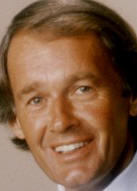House Approves Caller ID Spoofing Bill
June 12, 2007. The House amended and approved HR 251 [LOC | WW], the "Truth in Caller ID Act of 2007", by voice vote.
Caller ID spoofing can be used to facilitate fraud and identity theft. It can be used to defame a person or entity whose caller ID information is spoofed. It also frustrates certain business functions, such as credit card verification and automatic call routing.
This bill would amend 47 U.S.C. § 227, which pertains to "Restrictions on use of telephone equipment". First, it would add the following prohibition: "It shall be unlawful for any person within the United States, in connection with any telecommunications service or VOIP service, to cause any caller identification service to transmit misleading or inaccurate caller identification information, with the intent to defraud or cause harm."
This bill also amends Section 227 to provide "Nothing in this subsection may be construed to prevent or restrict any person from blocking the capability of any caller identification service to transmit caller identification information."
The bill also carves out an exception to this prohibition for law enforcement and intelligence related activities. It states that "Nothing in this subsection shall be construed to authorize or prohibit any investigative, protective, or intelligence activities performed in connection with official duties, and in accordance with all applicable laws, by a law enforcement agency of the United States, a State, or a political subdivision of a State, or by an intelligence agency of the United States."
It also requires the Federal Communications Commission (FCC) to write implementing regulations within six months.
The bill also provides that the FCC "shall examine" whether it regulations promulgated pursuant to 47 U.S.C. § 227(b)(2)(B) "should be revised to require non-commercial calls to residential telephone lines using an artificial or pre-recorded voice to deliver a message to transmit caller identification information that is not misleading or inaccurate."
Subsection (b) pertains to "Restrictions on use of automated telephone equipment". Subsection (b)(1) contains the prohibitions. Subsection (b)(2)(B) allows the FCC to create exceptions for non-commercial calls.
Rep. Ed Markey (D-MA) stated in the House that this bill addresses caller ID spoofing, which happens "when a caller masks or changes the caller ID information of their call in a way that disguises the true origination number of the caller. In many instances, a call recipient may be subject to pretexting through spoofing, which can lead to fraud, personal ID theft, harassment or otherwise put the safety of the call recipient in danger."
 Rep. Markey (at
left) added that "we must recognize that there may be circumstances
when a person's safety may be put in danger if their true and accurate call
origination information is disclosed".
Rep. Markey (at
left) added that "we must recognize that there may be circumstances
when a person's safety may be put in danger if their true and accurate call
origination information is disclosed".
The prohibition only reaches conduct "with intent to defraud or cause harm".
Rep. Cliff Stearns (R-FL) stated in the House that "The increasing use of VOIP, which is voice over Internet protocol, that we see in America and other Internet telephone services, has made it much easier for people to make any number appear on a caller ID system."
He added that "several Web sites have sprung up to provide caller ID spoofing services, eliminating the need for any special hardware to replicate this."
The House approved a similar bill in the 109th Congress. On June 6, 2006, the
House approved
HR 5126, the "Truth in Caller ID Act of 2006", by voice vote. However,
the Senate did not approve that bill.